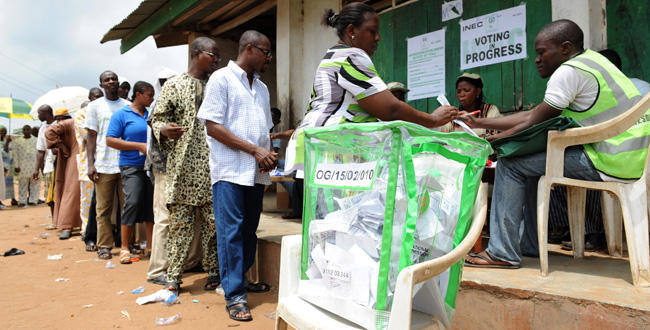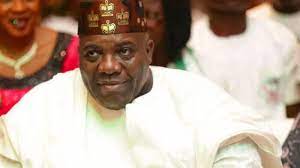By Chijioke Churuba
Irrational exuberance was coined by Mr. Alan Greenspan- the former Chairman of the Federal Reserve, in a speech he delivered on December 5, 1996, titled: The Challenge of Central Banking in a Democratic Society.
That speech was delivered in response to the concerns over the asset values of most Tech- Companies- which, during the 1990s, were unduly priced above their intrinsic values, as a result of sheer market excitement and blind speculation.
The phrase: Irrational exuberance, had since the year 1996, been popularized by Behavioural Scientists, and Economists such as Robert J. Shiller in a book that he called: Irrational Exuberance– that was published in March, 2000.
Experts, especially those, from the behavioural sciences, have argued that the limitations associated with the human psychology, make it difficult, for people in certain situations, to truly, act as rational agents, as assumed and postulated by classical theorists.
Such limitations, have been argued to be partly responsible, for some irrational behaviors, exhibited by people in situations such as: in ponzi schemes, betting and gambling environments (even when the odds are glaring), and have been exploited by businesses, through predatory advertisements and by some politicians through political propaganda and ‘media hysteria’ to achieve predetermined results.
The concept of Irrational exuberance tends to suggest that people’s decisions and motivations are not entirely driven by rational imperatives and hard core fundamentals, but in some instances, as a result of irrational emotions, myths, excitements, trend – following, and ‘isomorphic pressures’.
On the political front, one can argue that when such influences are unwittingly validated by the media, or those whom the society see as influencers, or being responsible for shaping their general public opinion, a bandwagon effect or irrational exuberance could be created on a critical mass – that could alter the political and leadership outcomes of a country.
Interestingly, Nigeria appears to be country, where ‘irrational exuberance’ is usually deployed to manipulate our political outcomes. It has become a disturbing feature of the Nigerian political environment that needs to be researched by those interested in the political development and evolution of this country, so that, we can gain more insights.
Our political space is increasingly, looking like a vain entertainment reality show, with negative leadership implications! But, politics is a very serious business, and not an entertainment business. Politics affects the lives, wellbeing and prosperity of real people. It affects the quality of governance, dreams and expectations of a people.
To have good politics, quality Information is critical. Regrettably, Nigerians tend to get the short end of the stick when it comes to real time, unbiased, (quality) political information, from our gatekeepers, political influencers and elites.
Sometimes, the information is deliberately twisted and skewed with the intention to manipulate the public or create ‘exuberance’, trend- following, in a manner that, sub- optimizes the abilities of most Nigerians to make good assessments, and helpful political decisions.
When irrational exuberance is created and becomes unchallenged over a period of time, people naturally would begin to buy-in and become emotionally attached to that particular cause.
Overtime, we have ‘irrational exuberant fundamentalists’; whose political opinions and dispositions are militant, instead of persuasive. And in that instance, another dangerous dimension is created; which is: a form of ‘blind and militant political followership’ as seen in some parts of Nigeria.
The challenge with blind and militant followership is that: It is not usually, driven by values, ideologies, logic, or rational fundamentals – which could enrich our political conversation, or even challenge our current leadership model. It is usually fueled by sentiments, myths, speculation, hearsay, and irrational imperatives.
Thus, our democratic conversations are usually emotive, combative, threatening, and always appeal to our fault lines with ugly outcomes.
‘Irrational exuberance in politics’ is sheer emotions; that is devoid of rationality, commonsense, and verifiable fundamentals.
It appears that, it was as a result, of irrational exuberance – that made many Nigerians to believe that $1 could be exchanged for =N=1 within a short period of time!
Many Nigerians cared less to interrogate this claim, even, when it sounded antithetical to the submissions of basic macroeconomics.
It could have been, as a result of irrational exuberance that made, many Nigerians to believe that, the international/global oil market could be stabilized by ‘one man’, and that our ailing power sector could be fixed within six months!
It could have been, as a result of irrational exuberance that made many Nigerians to believe, that about 720,000 jobs could be created every year, and that our GDP in real terms, could grow by 10% on the average.
It probably, could have been as a result of irrational exuberance that, made many Nigerians, to believe that – government officials would no longer be allowed to seek medical care abroad!
Irrational exuberance in economics thrives on speculation, creates bubbles, and causes economic contractions. Irrational exuberance, in politics creates political myths, uneducated politics, political extremism/ militancy, unreasonable cult-like followership, incompetent leadership, crappy governance, economic contractions, wreaked expectations, and public frustrations.
Irrational exuberance if unchecked in politics creates series of other dislocations and discontents, across and at different levels of a country’s polity.
Arguably, politics in Nigeria has the attributes of a ‘terribly inefficient market’. In the Nigerian political space; there are emotions, conflicting and underhand interests, and motivations. There are costs, benefits, asymmetrical information, and ‘avalanche of irrational exuberance over ‘fundamentals’.
In the Nigerian political space, there is this illusion of many players, but in real terms, our political outcomes and directions are determined by few people, who have access to resources, information, and have the power to manipulate the political market space to suit and balance their interests, earn them excessive democratic dividends, to the exclusion of majority of Nigerians.
Similarly, our politics is not, as competitive as it appears to be. Participation in the Nigerian political playing field: from the ward level to the centre, is strictly ‘by invitation’ and refereed by few elements.
As a result, our political space appears to be terribly ‘inefficient’, and our political outcomes out of sync with the expectations of majority of our people, with perennial public frustrations.
The motivations, interests, claims and promises of our key players are usually not genuinely interrogated and challenged by those – whom the society look up to. And as a result- emotions, myths and propaganda are exploited and harvested to achieve political victories for incompetent leaders at different levels.
As 2019 approaches, the elites, men and women of good conscience – who are interested in a ‘new Nigeria’ must begin to interrogate claims, promises and the quality of information dished out by our politicians.
Any claim or promise- found to be deceitful, false, unusually vain, boastful, or meant to capture and manipulate the imaginations of our people, should be dismantled quickly from our mainstream conversation and never be allowed to gain momentum in our political space. If we get the political information right, Nigerians would be better equipped, to ask meaningful questions and make better political decisions.
We must make sure that, our emotions are well channeled towards building a ‘new Nigeria’ and not to be exploited by politicians, to achieve predetermined ends.
Those who are emotional about a new Nigeria, must use that enthusiasm for the right causes, using civil and democratic channels to address all ‘irrational strongholds’ – before they are harvested in the form of irrational exuberance by our politicians.
We must not allow irrational strongholds – which are contrary to common sense, facts, values and ‘verifiable fundamentals’ to contaminate and take root in our political landscape, or allow them to hold our people captives any longer!
The questions for those who are interested in a new Nigeria are: How can we, use democratic channels to ‘deescalate or demobilize irrational exuberance’ in our political space, without compromising the overall wellbeing of Nigeria and Nigerians?
Also, how do we counter ‘irrational exuberance’ and still achieve good leadership, without making the mistake of merely substituting one ‘incompetent leadership’ with another ‘incompetent leadership’ driven on the back of a new set of irrational exuberance?
This is the time, to begin, to educate and renew the minds of our people, so that, they can hold on to those things – which are true, lovely and honest.
Mr Churuba, an economist and retired banker, wrote in from Port Harcourt.













